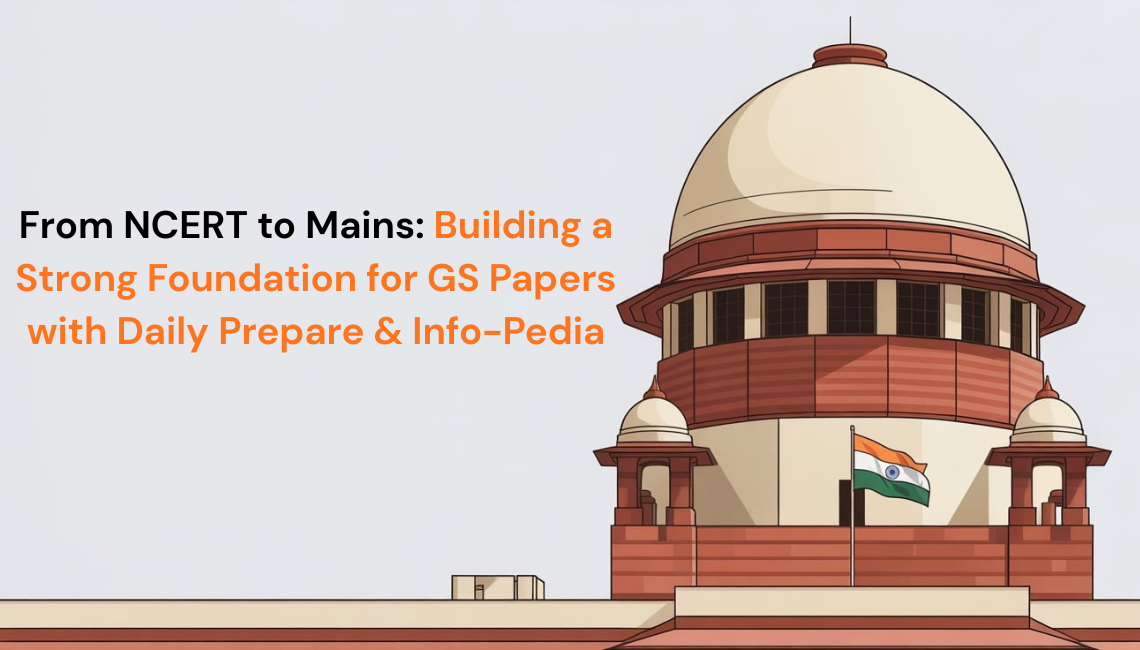Training to take the Civil Services Examination is a process that requires the sense of clarity, regularity and a clear course of action. The General Studies (GS) papers are the foundation of both the Preliminary and Mains stages and their acquisition usually starts way back, right after the knowledge of NCERTs. Aspirants have to take their studies in planned stages to form a good conceptual foundation and to proceed with a smooth transition between elementary and advanced training.
The contribution of NCERTs towards the foundation
All the UPSC toppers lay stress on one thing, begin with NCERTs. These textbooks are also composed using simple language and discuss some basic concepts in various subjects like history/geography, economics, and polity. The NCERTs assist the aspirants in developing a good conceptual clarity which is required later when they handle some complicated subjects in the GS Mains.
As an example, NCERTs on Class 6 to Class 12 in disciplines such as History or Geography offer a factual background and a timeline which may be used to comprehend the social, political and economic development of India. Reading NCERTs first before proceeding to advanced books such as Laxmikanth or Spectrum is a sure way to make sure that your understanding is correct and holistic.
Moving to Advanced Preparation
After the basics, the aspirants will have to slowly transition to advanced sources. This stage entails relation of the contemporary to the fixed topics. To illustrate, a better realization of the concept of inflation as taught in NCERT Economics comes in when it is connected with a recent update in RBI monetary policy.
Importance of Info-Pedia to the enrichment of GS
General Studies papers do not only examine knowledge but also test an ability to connect concepts and to come up with balanced and analytical responses. At this point, the Info-Pedia, a properly organized body of information, facts, and thematic observations comes in very handy.
The fact that a single source of reference is available on schemes, reports, international organizations, indices and some provisions in the constitution is a time saving factor and it is factual when writing the answers. An example is that the mention of a recent report by NITI Aayog or a United Nations rankings would give a certain element of credibility and depth to an essay or GS reply.
By having such compiled resources, one can be sure that the aspirants are not overwhelmed by random information and can revise in a more systematic way before the Mains exam.
Combining Long-Term Retention and Daily Learning
Long term retention of information is one of the greatest problems of glimpsing through the UPSC preparation. It is all about regular revision. Alternating between study content according to the current subject, current affairs, and revision also aid in balancing the preparation.
An example is a weekly plan, which may entail:
-
3 days in revising NCERT or subjective subjects,
-
2 days to update the current affairs, and
-
2 days of GS answer writing or mock test.
This combination of routine and revision makes sure that there is a gradual but swift advancement in basic to thorough analysis at the Mains level.
Conclusion
This is the same progression aspirants are coached to follow at Dhyeya IAS whereby it starts with the basics and then graduates to analytical understanding such that their preparation process is holistic but exam-focused. Daily learning and regular revision can help the candidates clearly and decisively move on to the Mains after achieving well in NCERTs.







